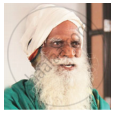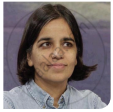Advertisements
Advertisements
प्रश्न
Why do accidents usually happen in the playground? Give your own examples and explain
उत्तर
Accidents happen in the field. Once a pole vault champion was in the mid-air. The pole he was ‘ using to jump suddenly snapped. More than 3.5 million children in the age group .of 5-14 years get hurt annually playing sports or participating in some recreating activity. In rough games such as football, children even get brain injuries. Such accidents happen because athletes who involve in brave acts throw caution to winds and do dare-devil adventures like skiing in deadly valleys and mountain tops.
Fencing causes sword injury. In Tamil Nadu, a boy lost his eyesight, due to an accident in fencing. Boxing is the worst game that evinces damages to the chin, skull, jaws, etc. Muhammad Ali the legendary boxer, made holes in the skull of an opponent boxer with his technical hits. Jallikattu sports cause fatal injuries. I have seen young men gored to death by charging bulls. Ankle gets sprained when a long jumper lands on the sand in an awkward manner. Chronic injuries are caused when sportsmen over-stretch their muscles. Some athletes in my class went for a 400 m dash without any practice. Just before the finish line, they had cramps and fell down with great pain. If one decides to become a sports person he must do regular practice to avoid or overcome sports injuries.
APPEARS IN
संबंधित प्रश्न
What happens to the poet when he visits someone for the third time?
How does the poet compare his face with dresses?
Read the line given below and answer the question that follow.
‘Most of all, I want to relearn How to laugh, for my laugh in the mirror Shows only my teeth like a snake’s bare fangs!’
- Why does the poet want to relearn how to laugh?
- Whom does the poet want to relearn from?
- Mention the figure of speech used here.
Explain the following line with reference to the context.
There will be no thrice.
How does the poet establish the victory of common sense over ego?
According to the poet, what contributes most to the injuries sustained by the athletes?
Read the given lines and answer the questions that follow in a sentence or two.
Well, ego it might be pleased enough But zealous athletes play so rough…
- What pleases the ego?
- Why are athletes often rough during play?
Underline the alliterated word in the following line.
For this most modest physiques…
You are the School Pupil Leader. Mention some qualities that can be drawn from the field of sports to improve your leadership skills.
Read the following line and identify the figure of speech used in each extract.
To her fair works did Nature link
The human soul that through me ran.
How does the poet feel while enjoying the beauty of Nature?
How do people bring grief and sorrow to one another?
The poem is set in a ______.
When humanity fails to live in harmony with Nature, its effects are felt around the world. Why and how?
Describe Macavity’s appearance.
Why does the poet say Macavity is ‘outwardly’ respectable?
Which two characters does the poet refer to as examples of wicked cats?
Give an account of Macavity’s destructive mischief.
Read the given lines and answer the question that follow.
He sways his head from side to
side, with movements like a snake;
And when you think he’s half asleep,
he’s always wide awake…
- Explain the comparison made here.
- What does he pretend to do?
Identify the following personalities and their fields of achievement.
| Name | Field | |
 |
||
 |
||
 |
||
 |
||
 |
||
 |
||
 |
||
 |
- Mention a remarkable achievement of any of these personalities.
- What quality do you admire the most in each of these achievers?
- What are the qualities that you may share with them?
- Name a few more popular personalities who have made our nation proud.
- ______.
- ______.
- ______.
- ______.
What does ‘Everest’ in the title stand for?
The historical background:
The poem is an extract from William Shakespeare’s play King Richard the Second. The play is based on true events that occurred towards the end of the 14th century.
Richard II was crowned the King of England in the year 1367. He continued to be the British Monarch until 1399, when he was deposed by his cousin, Henry of Bolingbroke, who crowned himself King Henry the Fourth in the same year. Shakespeare’s play is a dramatic rendition of the last two years of King Richard II’s life. In this brief span of time, he was ousted from his royal position and sent to prison, where he died in captivity.
The following extract is set in the Coast of Wales. King Richard and some of his followers awaited the arrival of the Welsh army [after facing defeat at the hands of his cousin, Bolingbroke], of about 10000 warriors. But to their shock and surprise, they received the message that the army was not coming to their rescue. His followers tried to boost their King’s courage against the news, only in vain. When Richard came face to face with the reality of his terrible fate, he spoke the following verse, famously known as the “Hollow Crown” speech in theatrical circles. In it, King Richard is reminded of the power of Death that overshadows everything else, including the power of rulers, and renders them as powerless as any commoner at a moment’s notice.
Who is Bolingbroke? Is he a friend or foe?
Are all deposed kings slain by the deposer?
Explain the following line with reference to the context in about 5 to 8 line:
“Comes at the last, and with a little pin
Bores through his castle wall, and farewell king!”
Read the poem once again carefully and identify the figure of speech that has been used in each of the following line from the poem:
“Scoffing his state and grinning at his pomp,…”
Pick out the alliteration from the following lines:
“Our lands, our lives, and all, are Bolingbroke’s,…”
Based on your reading of King Richard’s speech, answer the following questions in about 100 - 150 words each. You may add your own ideas if required to present and justify your point of view.
How are eternal truths and wisdom brought to the reader here?
